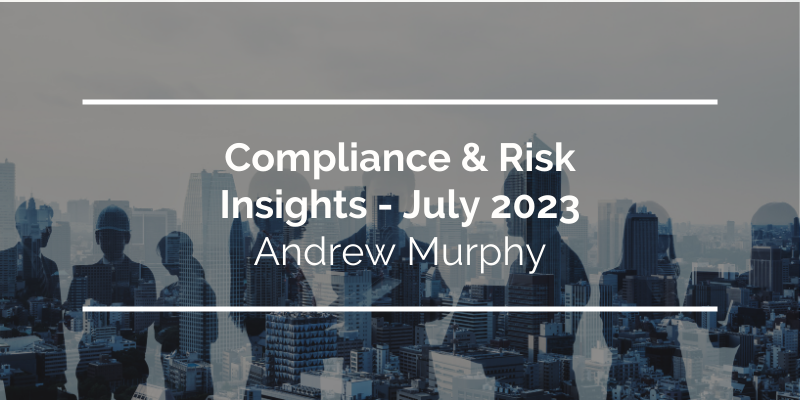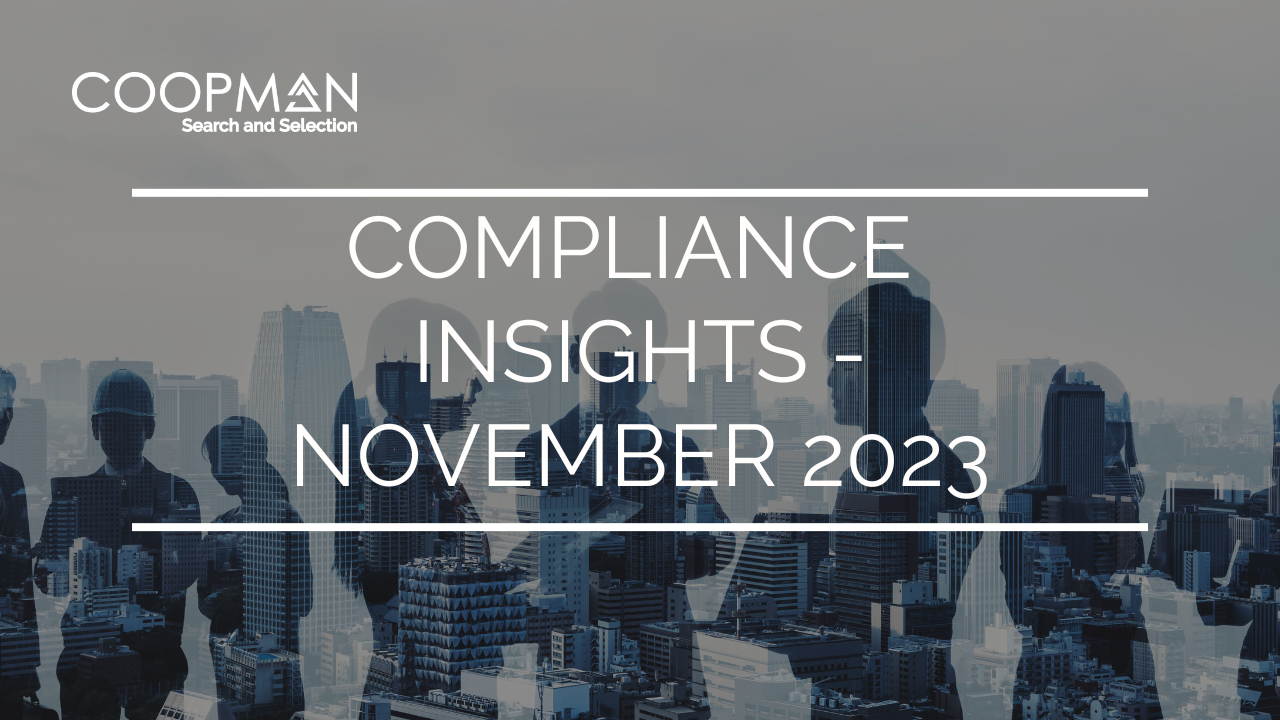An important question this month within the Compliance and Risk industry is; Are companies ESG ready?
Specifically, the question arises as to whether these teams are adequately prepared and equipped to effectively address the challenges and responsibilities brought forward by ESG considerations. It is crucial to evaluate whether your teams are adequately equipped and competent in addressing ESG-related challenges, as ESG is rapidly emerging as the most significant and consequential risk confronting CEOs in the current business landscape.
Over the past decade, there has been a notable shift in the top five global risks in terms of probability. Former concerns such as income disparity and cyber-attacks have been displaced by more pressing issues like the failure to adapt to climate change and the decline of biodiversity, among others.
Compliance
The role of Compliance has shifted in the last number of years and Compliance functions have experienced significant growth, resulting in increased pressure from new regulations, predominately ESG regulation.
This shift poses the question, are Compliance divisions strategically considering the integration of ESG principles into their operating models? It is imperative for companies to proactively contemplate and establish the necessary structures and frameworks to effectively incorporate ESG considerations into both their operating and delivery models.
Potential approaches for implementing this transformation include:
- Centralised Model: Appointing a Head of ESG Compliance who reports to the Head of Compliance.
- Decentralised Model: Integrating ESG responsibilities into the roles of individual employees, ensuring ESG considerations become an inherent part of their responsibilities.
- Hybrid Model: Employing dedicated ESG resources who report to the Head of Compliance, thus striking a balance between central oversight and decentralized implementation.
A prevailing theme in the market is that many firms remain undecided regarding their preferred delivery model and have yet to recruit dedicated ESG resources. Moreover, the scarcity of talent in this domain is evident, as the necessary skill set is still emerging and evolving. As a result of this, companies are advised to explore the option of upskilling their existing workforce as a possible strategy.
Risk
Within the Risk sector, greenwashing has emerged as a prevalent concern, raising doubts among many individuals regarding the credibility of companies’ ESG offerings, particularly from a product perspective.
To address potential risks associated with greenwashing, companies must conduct thorough assessments encompassing reputational, legal compliance, and conduct considerations. These discussions regarding greenwashing risks and mitigation strategies need to be actively integrated into board-level meetings. By elevating the importance of these matters to the board level, companies can demonstrate their commitment to upholding ESG principles and proactively address potential risks, thereby fostering trust and confidence.
As a BCorp certified company, Coopman is strongly aligned with the sustainability agenda within the financial services sector. If you are interested in discussing talent-related matters relating to ESG, please get in touch with Director and Co-Founder Andrew Murphy at andrew.murphy@coopman.ie








